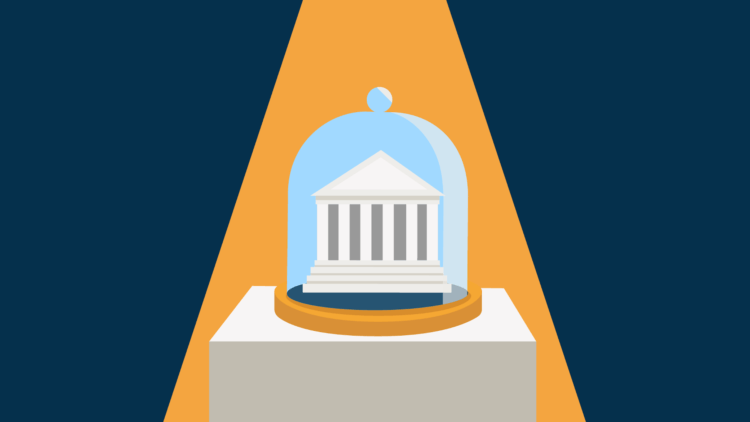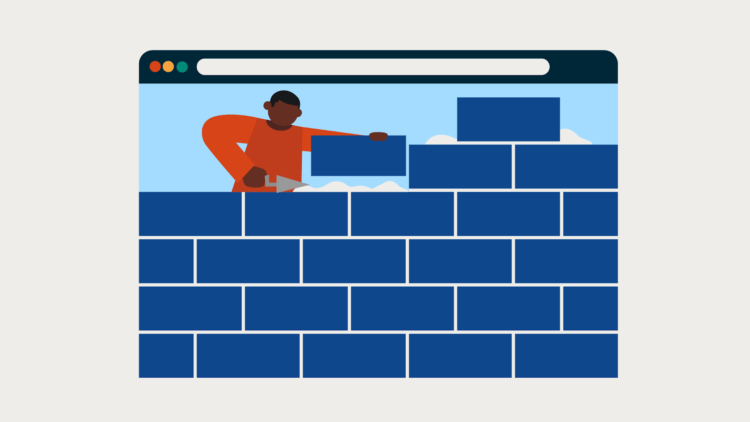Lawyers know better than anyone that education is a life-long pursuit, extending far beyond the four corners of a legal textbook. And, in our ever-changing digital world, data literacy—and, unfortunately, data security—is becoming essential for lawyers.
While all lawyers need to be aware of the risks associated with our new digital environment, these new challenges also come with opportunities for particularly data-proficient lawyers. If you’ve put in the work to develop your data privacy knowledge or practice in the area of privacy law, pursuing data privacy certification is a great way to test your skills and demonstrate your expertise to colleagues and clients.
The best way to pursue certification is through the International Association of Privacy Professionals (IAPP), the world’s largest, most comprehensive global information privacy organization. Their certifications are considered the “gold standard” for validating privacy expertise for professionals.
In this post, we’ll cover the importance of data privacy. Along with some of the data privacy certifications for lawyers offered by the IAPP, and how you can start your journey to certification today.
What CIPP certification is best?
Keep in mind that you don’t have to select your CIPP certification based on your area of residence—A U.S.-based lawyer is not required to pursue a CIPP/US certification. The best CIPP certification depends on your focus area.
For example, a U.S. general practice attorney will benefit from CIPP/US certification as it demonstrates stringent knowledge of workplace privacy, state privacy laws, and limits on private-sector collection and use of data, all of which can regularly come up in cases.
A U.S. corporate attorney whose firm works with European clients, on the other hand, might be looking to demonstrate proficiency in GDPR, and would be better off pursuing a CIPP/E certificate. This certification encompasses pan-European and national data protection laws, key privacy terminology, and practical concepts relating to the protection of personal data and trans-border data flows.

The increasing need for data privacy
As technology advances, data grows—and the risk of data breaches increases.
Many of us have seen first-hand how devastating data breaches can be—for example, the 2021 Facebook data breach, which resulted in over 500 million users’ personal information being leaked. Greater awareness of the risk of data breaches has led to increased calls for better protection worldwide. In 2016, for instance, the European Union passed the General Data Protection Regulation—a privacy law that organizations that collect data related to EU citizens are required to follow.
What does this have to do with data privacy certification for lawyers? Despite an increased awareness of data breaches, law firms are still falling victim to data breaches at an alarming rate. According to the American Bar Association’s 2021 Cybersecurity Report, 25% of reporting firms claimed they had experienced a data breach at some point. Statistics like this beg the question: what more can lawyers do to protect themselves from data breaches?
Why it’s important for lawyers to get certification
Knowledge or awareness is an important first step in strengthening your law firm’s security. How can you hope to protect yourself if you don’t know what you need to be looking out for or what compliance requirements you need to meet?
This is where privacy certifications come in. By seeking data certification, lawyers will learn the ins and outs of data privacy and the steps they need to take to secure their law firm. This process comes with the added benefit of a certification that can help you stand out from the competition.
You may like these posts
Benefits of data privacy certification for lawyers
Data privacy certification for lawyers can come with many benefits. Read on to learn about how a data privacy certification can help you.
Become a Privacy Law Specialist™
Impress your clients and colleagues alike by becoming an American Bar Association Privacy Law Specialist™. This prestigious designation, available in certain states, allows the IAPP to certify lawyers who have met “stringent experience and knowledge requirements” as privacy law specialists. Qualifying for this designation endorses you as a trusted professional. Since data privacy is one of the fastest-growing areas in the legal industry, it’s a great opportunity to establish yourself as a lawyer on the cutting edge of legal trends. As a bonus, you’ll be able to advertise your specialization to clients and set yourself apart from the competition.
To learn more about whether you qualify to apply for the ABA Privacy Law Specialist™ designation, visit IAPP’s interactive Privacy Law Specialist™ map.
Boost income
Some clients want to work with law firms that have a proven commitment to data security. Others need law firms with a background in data privacy certification or privacy law to adequately assist them with their legal needs. Data privacy certification not only sets you apart from the competition—it also helps law firms boost their income streams. By acquiring data certification, you’re opening your law firm up to a wider client base—and, in doing so, increasing your revenue.
Stay up-to-date
A foundational understanding of privacy and data protection law is integral for any modern law firm. Expanding your skills and developing a deeper knowledge of these topics helps your law firm diversify and thrive as privacy laws change and demonstrates an ongoing commitment to your clients’ needs in an increasingly digital environment. By putting your clients’ needs at the center of your thinking, you can provide a better client-centered experience.

How to get data privacy certified
IAPP offers many types of privacy certifications in addition to Privacy Law Specialist™ certification, including the following:
- Certified Information Privacy Professional (CIPP): for privacy laws and regulations
- Certified Information Privacy Manager (CIPM): for operations managers
- Certified Information Privacy Technologist (CIPT): for IT professionals
Each certification comes with different objectives. Depending on the size of your law firm, though, all of them could be valuable. If you’re a lawyer, obtaining CIPP certification is likely your best option. This program focuses on privacy laws, regulations, and frameworks. It also verifies that you have demonstrated stringent experience and knowledge requirements related to privacy law.
CIPP certification for lawyers
If you decide to pursue CIPP certification, you will select one of four CIPP concentrations. All of which are focused on a specific region:
- Asia (CIPP/A)
- Canada (CIPP/C)
- Europe (CIPP/E)
- U.S. private-sector (CIPP/US)
Applicants prepare for their CIPP exam through independent study. Then, when you’re ready, you can purchase a Certification Exam. Once you have purchased your exam, you must schedule and complete your exam within one year. Assuming you pass your exam, you’ll be required to pay a certification maintenance fee. This will provide coverage for two-years. More importantly, you will be CIPP-certified!
For more information on the specific steps involved in the CIPP certification process, review the IAPP’s Privacy Certification Candidate Handbook 2022.
Next: Becoming an ABA Privacy Law Specialist
If you really want a gold star, you can leverage your CIPP certification and become an ABA Privacy Law Specialist. To obtain this certification, you will first need your CIPP certification as well as either a CIPM or CIPT certification.
In addition to having at least two IAPP certifications under your belt, you’ll need the following to apply:
- A member in good standing with at least one U.S. state bar
- At least 36 hours of continuing legal education in privacy law for the three-year period preceding the application
- A personal statement, along with at least five peer references attesting to your privacy law experience
- Successful completion of the IAPP’s Privacy Law Specialist Ethics Exam administered by the IAPP, or a recent Multistate Professional Responsibility Exam score of 80+
- Demonstrated “ongoing and substantial” experience practicing privacy law (defined as at least 25% of your full-time practice over three years)
While the requirements for obtaining an ABA Privacy Law Specialist designation are extensive, the benefits are numerous. Your efforts will undoubtedly pay off in the long run.
Final notes on data privacy certification for lawyers
By now, the importance of understanding data security issues should be clear for lawyers. If you’re looking to take your education one step further, however, consider data privacy certification for lawyers. Several of the certification options will help you build a solid understanding of data privacy issues. As well as help diversify your practice, highlight your skills in a competitive market, and win over clients.
We published this blog post in October 2022. Last updated: .
Categorized in: Technology







